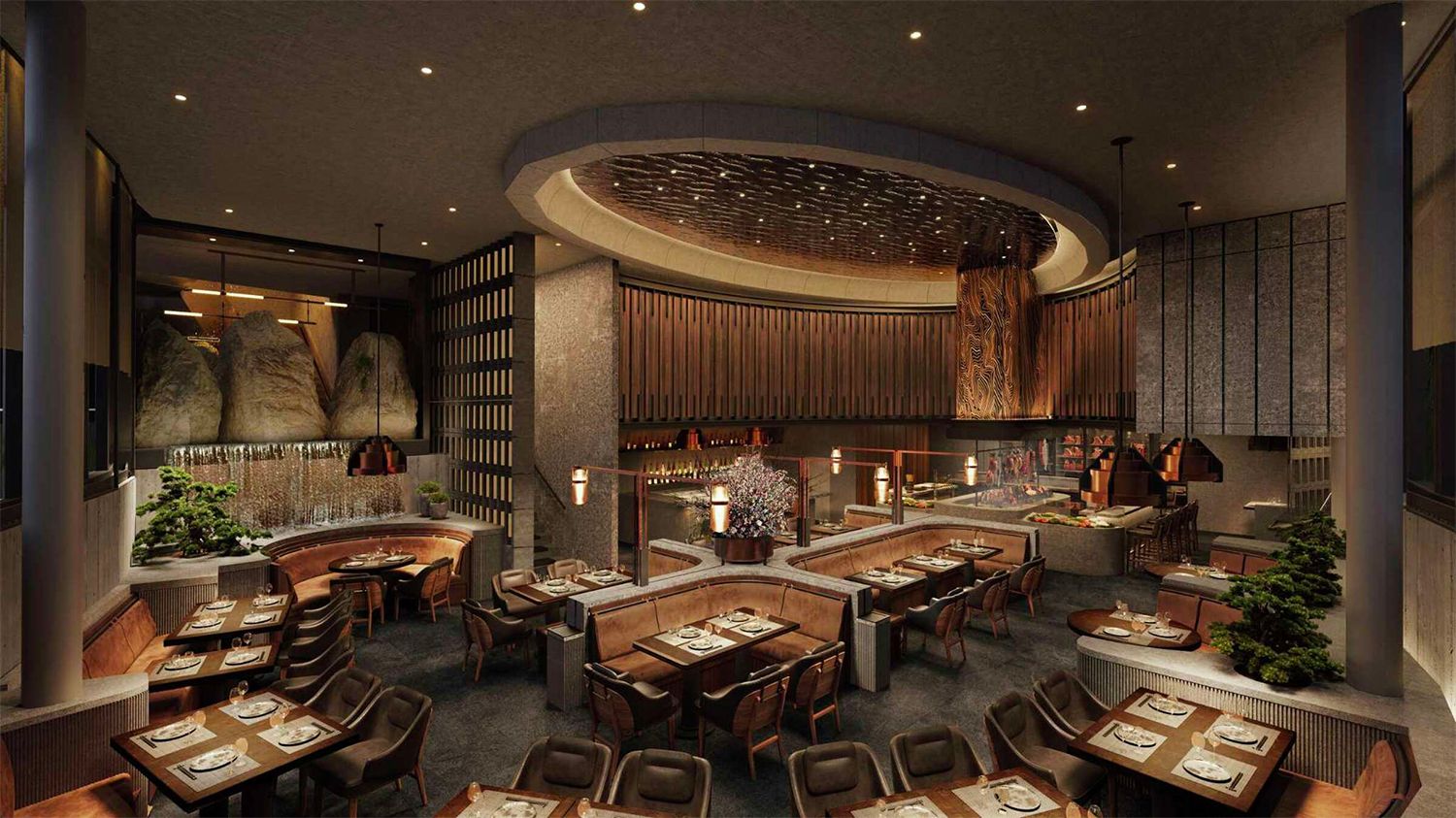It seemed like a stretch from the start — in the style of some Silicon Valley-backed, pie-in-the-sky pet projects — but now we have confirmation that the dual Japanese restaurants planned for one of the larger spaces atop the Transbay Transit Center, are joining the graveyard of dead SF restaurant projects.
This was a pre-pandemic pipe dream that seemed to have a new injection of life — or at least publicity — in 2021. SHŌ Group, a new hospitality group co-founded by respected chef Sho Kamio and entrepreneur Joshua Sigel, announced in 2019 that it intended to launch a splashy new, multilevel restaurant in the rooftop park that would be funded through the sale of NFTs.
With the crypto and NFT markets tanking in the last year, it stands to reason that this project might fall apart, and it has. SFGate reports, via confirmations from Sigel and the Transbay Joint Powers Authority, that the restaurant project is no more. And Sigel claims it was not for lack of interest or investment, and instead turns the blame on good old, crappy San Francisco and its recent downtown troubles.
"We have reached the difficult conclusion that bringing SHO to life atop Salesforce Park is not possible at this time," Sigel said in an emailed statement to SFGate. "Despite a strong demand for the concept with millions of dollars in both pre-sold and reserved memberships (despite multiple requests for refunds due to job uncertainty or loss), we ultimately could not address the many concerns brought about by potential investors, most of which have been around the future of SF and the rising costs of constructing the restaurant."
The Transbay Joint Powers Authority confirmed that it had terminated its lease agreement with SHŌ Group in July — and, the good news here is that this prime rooftop restaurant space is up for grabs for a perhaps more realistically scaled concept.
SHŌ Group had a groundbreaking event last summer, revealing a fancy set of renderings of what was to become a downtstairs restaurant led by Kamio called SHŌ, centered on Japanese irori cuisine ("irori" means "sunken hearth" in Japanese"). The upstairs — which would need to be added on to what's now a one-story shell — would feature Michelin-honored former Maruya and Sasaki chef Masaki Sasaki leading an upscale sushi restaurant called Sky Lounge.

Sigel tells SFGate that all the NFT investors have been reimbursed for the project.
SHO Group was not the first hospitality outfit in the country to attempt to attract restaurant investors through NFTs. The non-fungible tokens, which could be resold, were increasingly being associated around 2018-19 with private membership clubs that offered various kinds of real-world perks — and in this case those perks here would have included exclusive dinners, reservation access, entry to a VIP club space, and even travel to Japan with the chefs.
But, that all seems like a very long time ago now, and a time when crypto companies dominated the ads during the Super Bowl for one hot second, and regular people dumped a bunch of money in what essentially amounted to pyramid schemes that enriched a small segment of tech bros and savvy early adopters.
There's no telling whether the pandemic, or the subsequent downturn in SF's downtown economy, had anything to do with this deal's collapse. SFGate sent someone to attend the ground-breaking event last August, which they called "absurd." And by March, it already looked like the project wasn't going anywhere.
Meanwhile, we are just days or weeks away from the debut of another, seemingly very fancy and expensive rooftop restaurant with Japanese influences: Chotto Matte, in brand new digs atop the former Macy's Men's Store building on Stockton Street. Stay tuned for how that opening goes over.
Previously: That NFT-Backed Restaurant In Salesforce Park Appears Delayed

